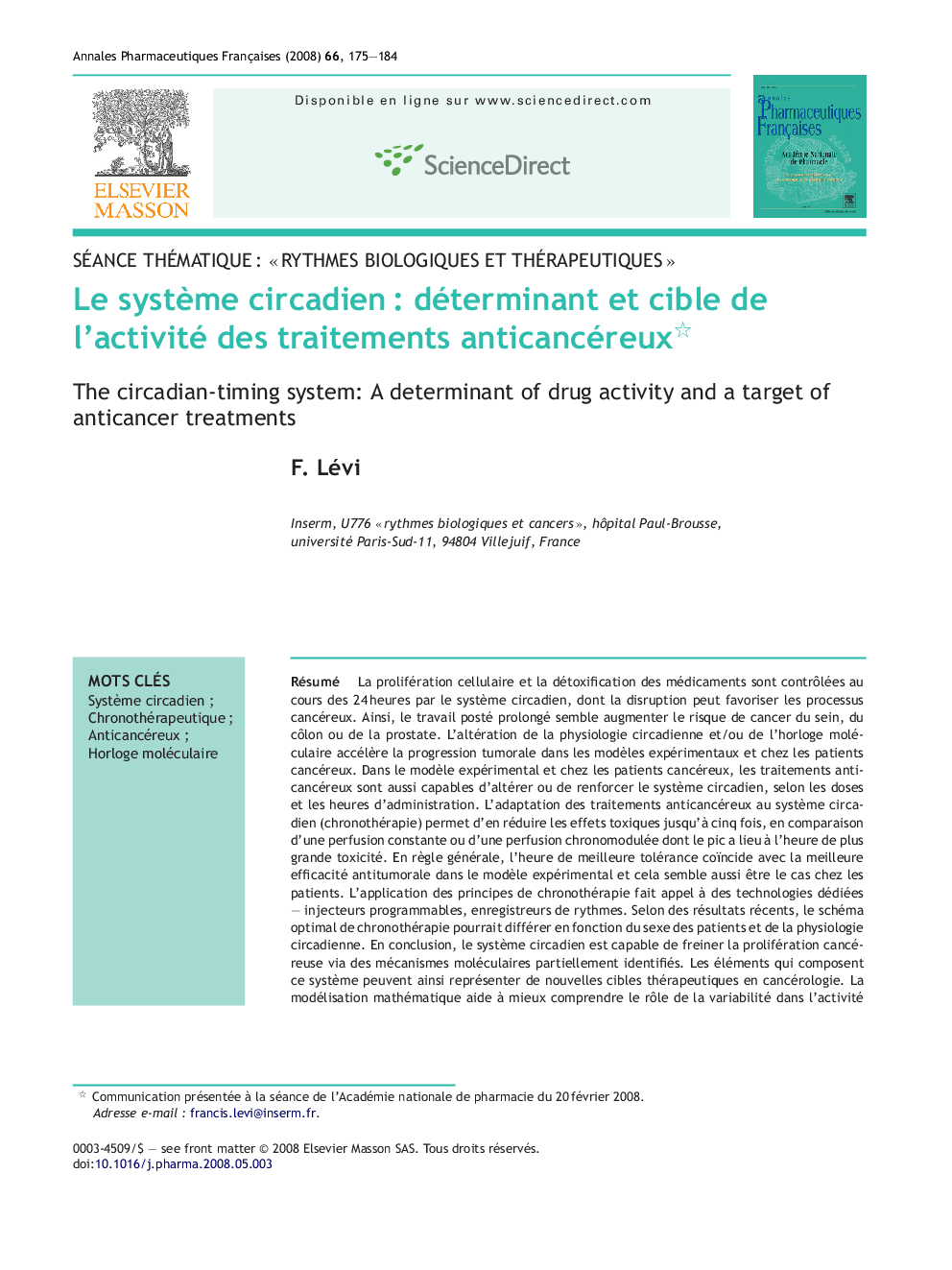| Article ID | Journal | Published Year | Pages | File Type |
|---|---|---|---|---|
| 2478393 | Annales Pharmaceutiques Françaises | 2008 | 10 Pages |
Abstract
Cellular proliferation and drug detoxification are controlled over the 24Â h by the circadian-timing system, whose disruption can favor malignant processes. Thus, prolonged shift work appears to increase the risk of breast, colon or prostate cancer. Alterations in circadian physiology and/or molecular-clock genes accelerate cancer progression in experimental models and in cancer patients. In addition, anticancer treatments can also dampen or reinforce the circadian-timing system, as a function of dose and time of administration. The adjustment of anticancer-drug delivery to the circadian-timing system (chronotherapeutics) has allowed to reduce five-fold the incidence of severe adverse events as compared to constant rate infusion or wrongly-timed chronomodulated delivery in cancer patients. In experimental models, the best antitumor efficacy is usually obtained following treatment delivery near the least toxic time, a statement that also seems to apply to patients. Dedicated technologies include programmable in time pumps and rhythm monitors and are required for chronotherapeutics. Recent results have revealed that the optimal chronotherapeutic schedule could differ as a function of gender and circadian physiology. In conclusion, the circadian-timing system was shown to negatively control malignant proliferation via partly identified molecular mechanisms. The components of the circadian-timing system thus constitute new potential therapeutic targets in oncology. Mathematical models help toward a better understanding of the role of variability for the determination of the optimal chronotherapeutic schedule and constitute useful tools for the personalization of cancer chronotherapeutics.
Related Topics
Health Sciences
Pharmacology, Toxicology and Pharmaceutical Science
Drug Discovery
Authors
F. Lévi,
